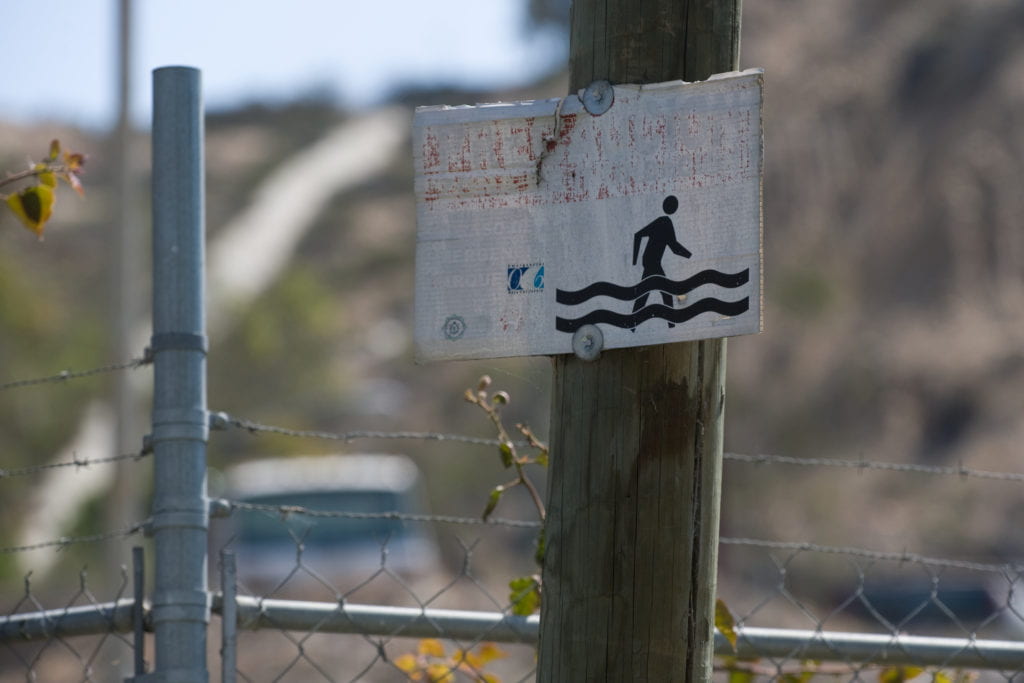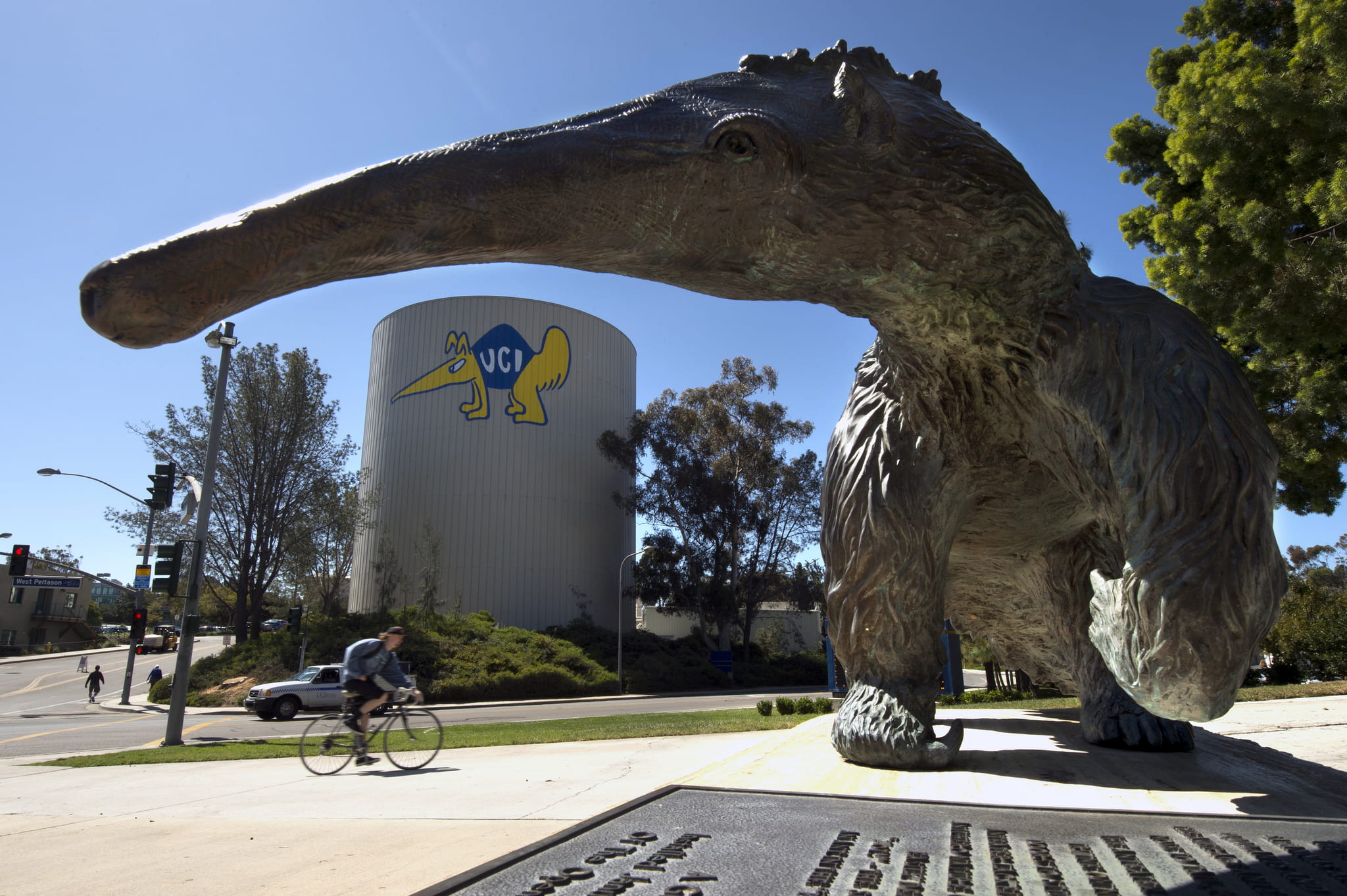The water challenge
Social ecology researchers take multiple approaches to finding solutions

Too much water, too little water, unclean water and unmet demand for water: Managing the most elemental of resources will be one of the defining challenges of the coming decades. It’s a challenge that UCI’s School of Social Ecology is poised to meet.
Water resource dilemmas intertwine the physical, biological, engineering and social sciences. Their solutions demand interdisciplinary approaches that take into account not just the location and amount of water, but the way people interact with it.
Water UCI, a cross-disciplinary, collaborative effort housed at the School of Social Ecology, fosters those solutions by bringing together engineers, ecologists, economists, social scientists and other experts from across the campus.
“In the past, universities tended to study water as an engineering concern. Where do we put the dams and where do we put the pipes? How do we move water from the Sacramento Valley to the Central Valley?” says Dave Feldman, director of Water UCI. “The engineers have discovered that there are lots and lots of ways to manage water, but what’s really important is public acceptance, trust and confidence, along with environmental and social equity.”

Fairness comes into play when regulators try to reduce water usage through higher pricing, shutting off taps or imposing restrictions on use.
“That’s a growing issue in California. Water management is a social problem, and applying water policy isn’t just about installing a set of widgets. It’s more complicated than that,” says Feldman, who’s also a professor of urban planning & public policy.
Global and statewide focus
Water UCI is cultivating an array of partnerships with universities and agencies around the world, across the state and in Orange County.
Israel and California, for example, are both heavily urbanized, semi-arid regions with large agricultural sectors. Both are on the leading edge of innovations in desalination, advanced water conservation and water reuse. Water UCI is developing alliances in Israel to study different methods of tackling water challenges in such areas.
“In Israel, there is much more acceptance of technological solutions, such as desalination and reclaiming sewage, while in California, we’re much more rooted in practices and using management tools to conserve and allocate water,” Feldman says.

Water and energy are inextricably linked, especially in California, where a quarter of the state’s energy production is devoted to moving, treating and heating water. Water UCI is exploring the water-energy nexus in California and across the western U.S. in concert with UCI’s Advanced Power & Energy Program.
The majority of Californians live in the south, while most of the state’s water is in the north, with an enormous, irrigation-dependent agricultural sector in between. The system that conveys water around the state is incredibly complicated.
Nicola Ulibarri, UCI assistant professor of urban planning & public policy, is part of a team recently awarded a $3.7 million grant to study that system.
She will create models for four Central Valley watersheds to better manage water storage, water quality and groundwater sustainability – especially as the population grows and as climate change causes higher temperatures and greater variance in precipitation.
Regional collaborations
Orange County’s water agencies are among the most forward-thinking in the country; the county has an advanced aquifer recharging system that uses recycled wastewater, and Irvine was among the first cities in the nation to recycle lightly treated wastewater for landscaping.
Water UCI is partnering with these agencies to examine how to better combine desalination, storm water capture, conservation and other management tools into an integrated water resource management system.
Storm water, in particular, poses a unique problem in the vast urbanized region of Southern California, where irregular and occasionally heavy rainstorms sometimes overwhelm flood control infrastructure and wash pollutants off streets into coastal estuaries. Water UCI is working with other UCI units and other universities to research ways of harvesting storm water as a resource while stemming pollution.
Rising sea levels and more intense storm surges increasingly threaten property and, potentially, lives. The UCI Blum Center for Poverty Alleviation’s FloodRISE program is promoting coastal resilience by mapping flooding hazards in two of Southern California’s largest estuaries: Newport Bay and the Tijuana River. FloodRISE shares flood threat knowledge with city officials, businesses and citizens via vibrant maps and other communication strategies.
“This type of nuanced, granular information is key to preventing flooding and the economic disruption it brings,” says Richard Matthew, director of the Blum Center. “With climate change, these problems are only going to grow more severe.”
The center is also using aerial drones to map flooding hazards in locations around the world, starting with projects in Nepal, Malawi and Mexico.
Water challenges extend beyond destructive floods. As the crisis in Flint, Michigan, made clear, water quality issues can deeply affect communities across the country. Maura Allaire, UCI assistant professor of urban planning & public policy, analyzed water quality violation hot spots and identified the types of water utilities that tend to flout standards more frequently, such as small, rural utilities.
“Even though major crises are rare, a sizable population drinks water each year that fails to meet national quality standards,” Allaire says. “By better understanding the trends and where these concerns occur, we can prioritize interventions and drive real change.”


